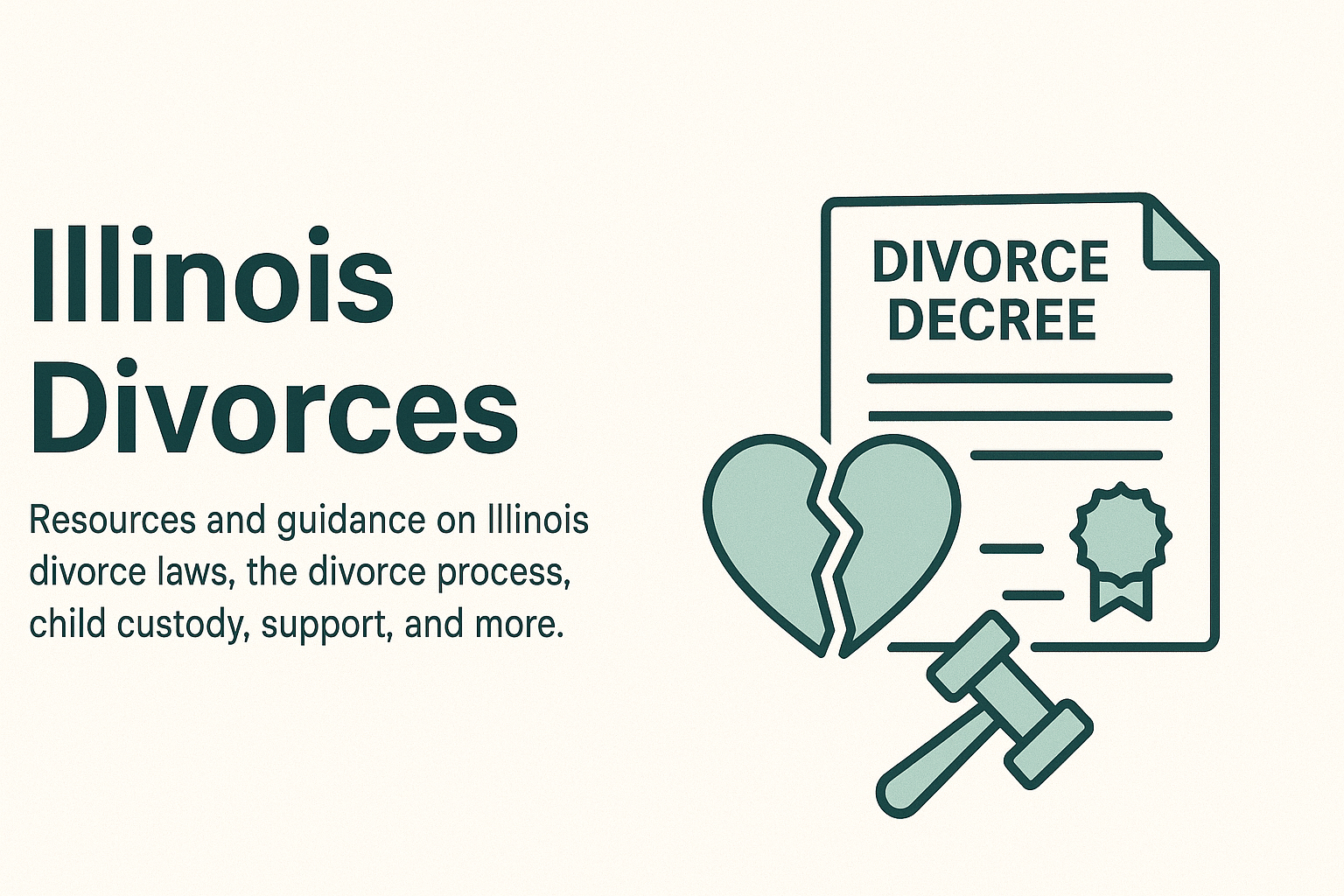Understanding the Divorce Process in Illinois
A step-by-step overview of the divorce process in Illinois.
Understanding the Divorce Process in Illinois
Going through a divorce is often one of life’s most emotionally taxing and legally complex experiences. It marks a major life transition and can bring a host of questions and uncertainties. While every case is unique, having a general sense of the process and timeline can help you feel more prepared and less overwhelmed.
Step 1: Filing for Divorce
The divorce process officially begins when one spouse, known as the Petitioner, files a Petition for Dissolution of Marriage with the court. In Illinois, at least one spouse must have lived in the state for 90 days before filing.
Illinois is a no-fault divorce state, which means that the only required grounds for divorce are irreconcilable differences. If you and your spouse have been living separately for at least six months, the court will automatically consider this requirement satisfied (750 ILCS 5/401(a-5)).
The petition includes key information about the marriage, such as personal details, personal and real property, financial accounts, and children.
Step 2: Notifying Your Spouse (Service of Process)
Once the petition is filed, the other spouse—referred to as the Respondent—must be officially notified. This legal notice is known as service of process. How long this step takes largely depends on how quickly and easily your spouse can be located and served.
Step 3: Responding to the Petition
After being served, the Respondent has 30 days to file a response with the court. If they do not respond, the Petitioner can request a default judgment, which allows the court to proceed and finalize the divorce without input from the non-responding party. If the Respondent does submit an answer, the case moves forward to the next phase.
Step 4: Information Exchange and Negotiation (Discovery)
At this stage, both spouses must exchange relevant financial and personal information—a process known as discovery. This can include tax returns, bank statements, and lists of assets and debts. Generally this information, and the accompanying documents, are exchanged in a Financial Affidavit.
During this period, both parties may also engage in settlement negotiations. If a full agreement is reached on issues such as property division, child custody, and support, the divorce can move forward more quickly and may not require a trial.
Step 5: Motions, Hearings, and Trial (If Necessary)
Either spouse can file motions during the case, such as requests for temporary child custody, spousal support, or exclusive use of the marital home. These motions are typically addressed in court hearings, where temporary orders may be issued.
If the spouses cannot reach a full agreement, the case will go to trial. Setting a court date can take several months, and the trial itself may last anywhere from a few days to several weeks, depending on the complexity of the case and the court’s calendar.
Step 6: Finalizing the Divorce
Once all matters are resolved—either through settlement or trial—the court will issue a Judgment of Dissolution of Marriage. This official document ends the marriage and outlines the terms of the divorce, including child custody arrangements, support payments, and property division.
The total time from initial filing to final judgment can vary widely. Uncontested divorces may be finalized in a few months, while contested cases with unresolved issues can take a year or more.
Conclusion: What to Expect
Divorce timelines depend heavily on whether the case is contested and how quickly agreements can be reached. An amicable split with mutual agreement on major issues will move more quickly, while disputes over assets, parenting time, or support will naturally lengthen the process.
We understand how deeply personal and legally intricate a divorce can be. Our team is committed to guiding clients through each step with clarity, care, and strategic counsel. If you’re facing divorce and need experienced legal support, don’t hesitate to reach out to us. With the right guidance, it is possible to move forward with confidence and peace of mind.
Do you have an imminent court date? Don't hesitate to contact us.
 Free Legal Consultations
Free Legal Consultations
 https://www.r-bloggers.com
https://www.r-bloggers.comExperienced legal services don't have to be expensive, Serritella Law handles legal matters efficiently and effectively while accomplishing your legal goals.
Whether in person, virtually or over the phone, we tell you how we will effectively handle your legal matter. We ensure you stay informed throughout the process so you know the progress being made.
If you have a new or upcoming emergency court date, we can ensure you are represented.
We offer legal consultations in person, over the phone and virtually in order to serve you better.